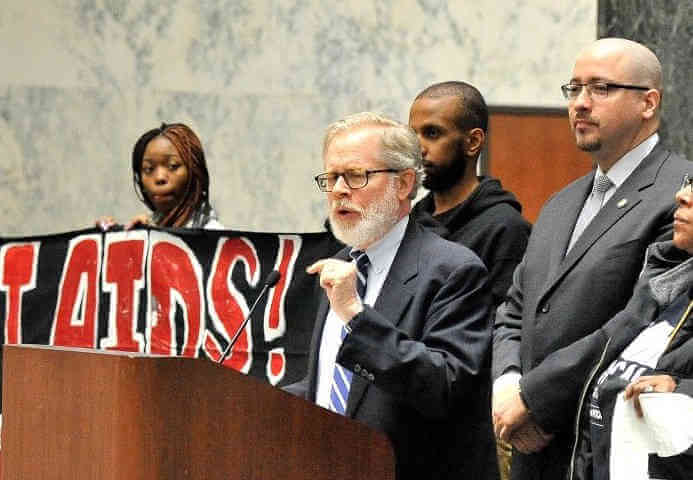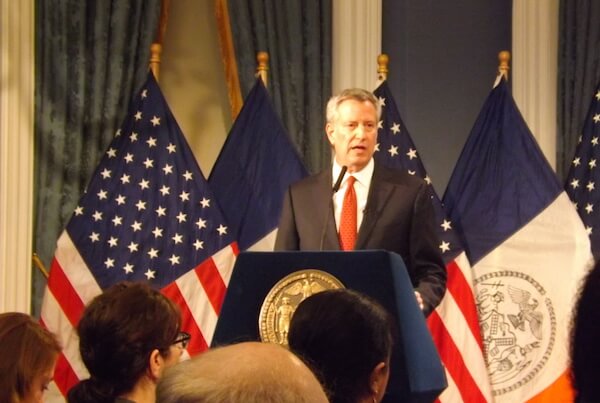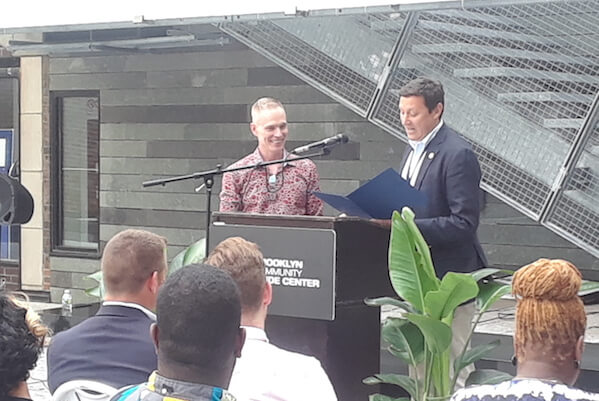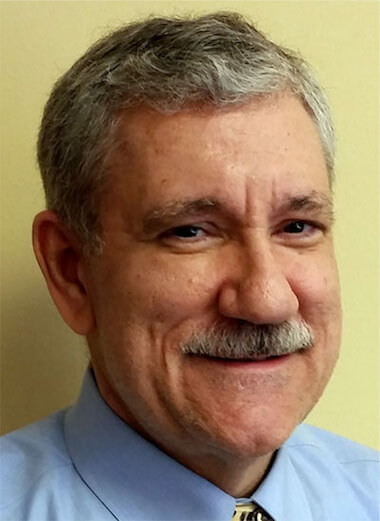Dr. Mark Baehser. | NYC HEALTH + HOSPITALS
Dr. Mark Baehser has worked in pediatric medicine for eight years, first in his residency at SUNY Downstate Medical Center in Brooklyn and, since 2011, at NYC Health + Hospitals, which is the nation’s largest municipal healthcare system.
Like Health + Hospitals, Baehser is aware that there is no clear-cut point at which a patient appropriately transitions from pediatric care into adult care. Along with many other practitioners in a variety of social service fields, Baehser and his colleagues have come to appreciate that becoming an adult – a category he termed “emerging adults” – represents a unique life phase, where individuals have different needs than they might have at either 14 or 28.
“For someone 19 or 20, maybe adult care is not appropriate,” said the out gay pediatrician in explaining the new Bridge Program he oversees at the Judson Health Care Center, a Spring Street unit of Gouverneur Hospital, a Health + Hospitals facility headquartered on the Lower East Side.
Gay pediatrician talks about serving young adult, LGBTQ patients
Emerging adulthood is now widely recognized by the mental health field, Baehser explained, and it carries it own challenges in the delivery of all medical services.
Young adults may no longer live with their parents and are often not connected to regular health care or working in a job where health coverage is one of the benefits. Often living on their own for the first time, these young people may be confronting challenging choices about their sexual lives, their use of alcohol or drugs, their diet, and other significant health questions. Young adulthood, Baehser said, is a “riskier period” than adolescence, a time when individuals are more “autonomous” than they’ve ever been.
And, in 2017, they are also engaging with the world in a different way than young people did even a decade ago. Explaining that the Bridge Program employs practices such as text messaging with young adult patients, Baehser said it is important that the effort create a “more fluid relationship with the patient” than has typically been the case in the medical world.
Gouverneur’s Bridge Program at the Judson Health Care Center is Health + Hospitals’ first initiative in formally “transiting” patients from pediatric to adult care, Baehser said, and he noted that his leadership of the effort represents his own transition beyond the traditional bounds of pediatric medicine.
It is a part, he said, of Heatlth + Hospitals’ commitment to tailor its services amidst a sprawling health care delivery system that serves diverse populations in all five boroughs – a mission formally laid out in its Plan to Enhance Equal Care.
As a gay doctor, Baehser voiced particular pride in Health + Hospitals’ accomplishments in becoming a leader in the delivery of care to the LGBTQ community.
“I’ve been here five years,” he said. “I am a gay male, and I’ve seen lots of changes since I’ve been here.”
The advances made within the system are due to training, at all levels including, Baehser said, “senior executives,” both online and in-person workshops. Those trainings, like others aimed as serving Health + Hospitals’ diverse patient base, must be renewed on an ongoing basis, he added.
Health + Hospitals’ outreach to LGBTQ patients involves not only the services provided – including medical and psychosocial care for men, women, and adolescents, gender transition and hormone therapy services, and HIV and STD prevention, screening, and treatment – but also the manner of delivery. Patients are encouraged to indicate their preferred gender pronoun, gender-neutral private bathrooms are available, and patients are able to access multi-stall facilities in line with their gender identity.
“We really want to embrace the LGBTQ community,” Baehser said in explaining the climate he encourages and has experienced at Health + Hospitals.
That effort has not gone unnoticed by advocates for LGBTQ health. Twenty-one Health + Hospitals units, in all five boroughs, are recognized by the Human Rights Campaign as Leaders in LGBT Healthcare Equality, a status that reflects across-the-board compliance with the objectives measured by the group’s annual Healthcare Equality Index.
The index ranks hospitals and other health care centers according to four criteria – patient nondiscrimination, equal visitation, employment discrimination, and training in LGBT patient-centered care.
Nearly 2,100 institutions voluntarily participated in HRC’s 2016 survey (a fraction of all such facilities), and 496 earned the Leader status that the 21 Health + Hospitals facilities were given.
LGBTQ New Yorkers are fortunate, the survey indicates. Only California, with 83 Leaders identified, outranks New York State, which has 71 such facilities. Two states more populous than New York – Texas and Florida – have only 13 and 20 institutions, respectively, that earned perfect scores. Other large states – including Illinois with 25, Pennsylvania with 24, Michigan with 10, Ohio with 29, and North Carolina with 16 – also lagged behind.
Baehser is not alone at Heath + Hospitals in emphasizing the importance of the system having a fully open door policy to the queer community.
“NYC Health + Hospitals is a leader in LGBTQ issues and is fully committed to providing responsive, compassionate, and respectful health care in a welcoming environment with a positive patient experience,” Dr. Ram Raju, who recently stepped down as he system’s CEO and president, said at the time the HRC rankings were announced. “We train our staff to have zero tolerance for discrimination based on sexual orientation and gender identity, and we honor open visitation rights for all LGBTQ patients.”



































